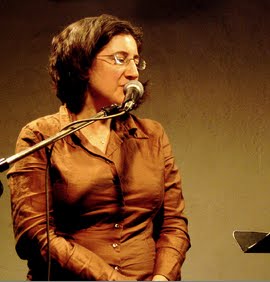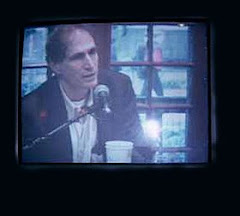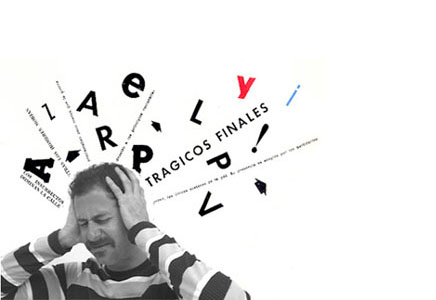 Linh Dinh, Julia Bloch, and Frank Sherlock joined Al to talk about a poem published in Norman Fischer's book, Turn Left in Order to Turn Right (O Books, 1989). The poem is "I'd Like to See It" (text; audio). When Fischer was interviewed by Charles Bernstein for a "Close Listening" program in 2006, he read six poems from that 1989 book, including our poem. These six readings, and a great many more, are available on Fischer's PennSound author page. His own web site also includes other recordings of poetry, and also talks.
Linh Dinh, Julia Bloch, and Frank Sherlock joined Al to talk about a poem published in Norman Fischer's book, Turn Left in Order to Turn Right (O Books, 1989). The poem is "I'd Like to See It" (text; audio). When Fischer was interviewed by Charles Bernstein for a "Close Listening" program in 2006, he read six poems from that 1989 book, including our poem. These six readings, and a great many more, are available on Fischer's PennSound author page. His own web site also includes other recordings of poetry, and also talks.Fischer is the former abbot of the San Francisco Zen Center, and is the founder of and a teacher for the Everyday Zen Foundation, a network of communities and projects. He began publishing poetry in the late 1970s and in those early years especially his writing was associated with that of the Bay Area Language Poets.
Fischer wrote the following prefatory statement to Turn Left in Order to Go Right:
Occasionally when people ask me about Zen practice I say it's not the usual kind of activity in that you can't really try to do it. If you try to move toward it it always seems to be somewhere else. The harder you try the worse it gets. But you can't not make any effort either; in fact you have to make a mighty effort, but in another direction. It's a little like turning left in order to go right.This sense of quasi-nonintentional misdirection, our Talkers felt, is a key to understanding the way Fischer in "I'd Like to See It" deploys the refrain, "I'd like to see it that way." Does it demand or expect the seer to see a certain way? Does it express desire? And how variously? Does it imply a program for a better future? Ah, but--as Linh Dinh points out--it seeks an end to war but wonders if wanting war to end would ever end it. "[W]ould my wanting / To end it ever end if nothing ever ended / I'd like to see it that way." Julia Bloch observes that the refrain both "swerves away from the intention" going on in any line preceding it "and also modifies it." At one point, grappling with the poem's refrain, Al puts it this way: "What I have now is not the way I'd like to see it. Or it could mean: the way I'm seeing it is the way I'd like the world to be, which happens to be the way it is because I observed it. One way or other, there is a difference between the way the world is and the way the world is if he is able to see it the way he'd like to."
 Frank Sherlock reminds us that Zen practice and jazz, cognate fields and modes of (non)thought especially in the U.S., produce a series of variations that focus our attention on modes of thought rather than on the subject matter of the poem (war, air pressure, one's birthday, "daily objects," a chimney). Frank reminds us of Fischer's adage: "To be without content, but full of light," where light equals (in this case) compositional process, the proceedings of a thought variously through unanticipated contexts.
Frank Sherlock reminds us that Zen practice and jazz, cognate fields and modes of (non)thought especially in the U.S., produce a series of variations that focus our attention on modes of thought rather than on the subject matter of the poem (war, air pressure, one's birthday, "daily objects," a chimney). Frank reminds us of Fischer's adage: "To be without content, but full of light," where light equals (in this case) compositional process, the proceedings of a thought variously through unanticipated contexts.Steve McLaughlin engineered this episode of PoemTalk, and, as always, edited it. Next time on PoemTalk, Tracie Morris, Herman Beavers and Josephine Park talk with Al about a poem Etheridge Knight wrote as a direct response to Gwendolyn Brooks, and we'll treat our listeners to a recording of a poetry reading in which Brooks introduced Knight and mentions (and quotes from) his rejoinder-poem.


























No comments:
Post a Comment